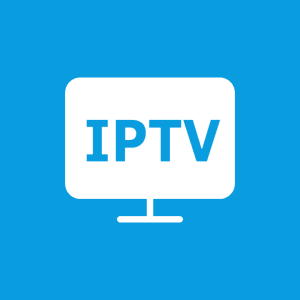IPTV for International Stations-- Get Worldwide Access
IPTV for International Stations-- Get Worldwide Access
Blog Article
How IPTV Functions: Your Complete Guide to Streaming TV Online
IPTV, or Net Protocol Television, represents a significant change in how we consume tv web content, relocating far from standard broadcasting methods to an extra versatile, internet-based approach. By using a client-server version, IPTV enables users to access a substantial range of programming via digital packets sent over broadband connections. Nevertheless, comprehending the intricacies behind this technology-- such as its parts, benefits, and numerous service kinds-- can be important for making educated selections in today's electronic landscape. As we check out these aspects, the effects for your viewing experience may become a lot more obvious.
What Is IPTV?
In the realm of digital media, IPTV, or Internet Protocol Television, represents a transformative technique to delivering television web content. Unlike standard broadcasting methods, which rely on cord, terrestrial, or satellite systems, IPTV uses web protocol to stream material straight to tools such as smartphones, tvs, and tablets. This technology makes it possible for customers to access a wide range of programming via high-speed web links, providing flexibility and ease.
IPTV can be categorized into three primary service models: live tv, video clip on demand (VOD), and time-shifted tv. Online tv permits customers to see broadcasts in real-time, while VOD supplies accessibility to a collection of web content that can be watched at the viewer's benefit. Iptv. Time-shifted tv makes it possible for viewers to watch programs at their recommended time, even if they initially broadcast online
Furthermore, IPTV commonly incorporates interactive attributes, such as digital program overviews and video recording capacities, boosting the watching experience. As consumers progressively require customized material and on-demand solutions, IPTV attracts attention as an engaging option, reshaping the tv landscape and offering extraordinary choices for customers worldwide.
Exactly How IPTV Functions
The seamless integration of technology and customer experience defines how IPTV operates. Web Protocol Tv (IPTV) provides tv programming and various other multimedia material via net methods, as opposed to traditional terrestrial, satellite, or wire layouts. This process involves inscribing video clip web content into electronic packets that are transferred over a broadband internet connection.
IPTV typically utilizes a client-server design where web content is saved on a web server and sent to the user's device-- such as a smart TV, computer, or smart phone-- upon request. The content shipment is promoted through a set-top box or an application that decodes the inbound information and presents it on the screen. Especially, IPTV operates on an on-demand or live basis, allowing customers to access a wide range of channels and shows.
A crucial element of IPTV is its dependence on a durable broadband link, which makes sure smooth streaming and premium video playback. Furthermore, IPTV systems typically integrate innovative attributes such as digital program guides (EPGs), time-shifting, and video-on-demand (VOD), enhancing the seeing experience. On the whole, IPTV represents a substantial development in just how audiences take in tv web content, leveraging the power of the internet for boosted ease of access and flexibility.
Benefits of IPTV
While conventional tv methods often limit customer selections and ease of access, IPTV provides many advantages that boost the total viewing experience. Among the main advantages is the considerable range of content readily available. Audiences can access a substantial collection of channels, on-demand shows, and motion pictures, customized to individual choices.
Furthermore, IPTV sustains several devices, allowing customers to stream material on mobile phones, tablet computers, clever TVs, and computer systems. This flexibility ensures that viewers can view their preferred programs anytime and anywhere, as long as they have a net connection. Additionally, IPTV frequently features interactive elements, such as pause, rewind, and document performances, supplying customers with higher control over their seeing routines.
Cost-effectiveness is another noteworthy advantage. Several IPTV services use competitive rates contrasted to standard wire registrations, frequently without concealed costs or long-lasting contracts. This affordability makes it easier for consumers to check out various channels and content without considerable monetary commitments.
Lastly, IPTV typically flaunts remarkable photo high quality, consisting of high-definition and 4K options, boosting the overall watching experience. Collectively, these advantages make IPTV a compelling selection for modern audiences looking for versatility, variety, and quality in their enjoyment options.
Kinds of IPTV Solutions
IPTV services can be categorized into a number of distinct types, each satisfying various viewer requirements and preferences. The primary groups include real-time tv, on-demand web content, and time-shifted IPTV.
Real-time television IPTV supplies real-time streaming of broadcast networks, enabling visitors to see programs as they air. This service carefully appears like typical wire TV, providing accessibility to a variety of networks, consisting of news, sports, and amusement.
On-demand IPTV, on the other hand, enables individuals to select and watch web go to this site content at their benefit. This consists of movies, collection, and docudramas that can be streamed whenever the audience picks, offering flexibility and customization.
Time-shifted IPTV incorporates elements of both on-demand and online services. It allows visitors to pause, rewind, or record live broadcasts, providing the capacity to manage their viewing experience. This service is especially useful for those with busy timetables, as it fits customers who may miss online programs.

Establishing IPTV
Establishing up IPTV includes a number of essential steps to ensure a smooth watching experience. You require a secure internet link, preferably a broadband solution with a minimum rate of 10 Mbps for common definition and at least 25 Mbps for high meaning streaming. This makes certain minimal buffering and a smooth playback.
Next, pick an IPTV service supplier. Research study different alternatives, contrasting their network offerings, prices, and customer evaluations. As soon as you've chosen a provider, you typically get login credentials and a web link to access the IPTV solution.
To start streaming, you'll require a suitable device - Iptv. Numerous IPTV solutions can be accessed via Smart Televisions, streaming boxes like Roku imp source or Amazon Fire TV, computers, or smart phones. Download the matching application or software application for your selected platform
After setup, log in utilizing your credentials and set up any needed setups, such as adult controls or channel choices. Finally, connect your tool to your television using HDMI, and you're ready to delight in a vast range of networks and on-demand web content. Consistently look for software updates to enhance performance and security, making sure an optimum IPTV experience.
Verdict

IPTV, or Internet Protocol Television, represents a considerable change in exactly how we eat television material, moving away from traditional broadcasting methods to a much more adaptable, internet-based method.In the world of digital media, IPTV, or Web Protocol Tv, represents a transformative method to providing tv web content.IPTV can be categorized right into three primary service models: live television, video clip on need (VOD), and time-shifted tv. Net Method Television useful source (IPTV) delivers tv programming and other multimedia material via web methods, instead than standard terrestrial, satellite, or cord styles. Generally, IPTV stands for a considerable evolution in just how viewers eat tv web content, leveraging the power of the net for enhanced accessibility and versatility.
Report this page